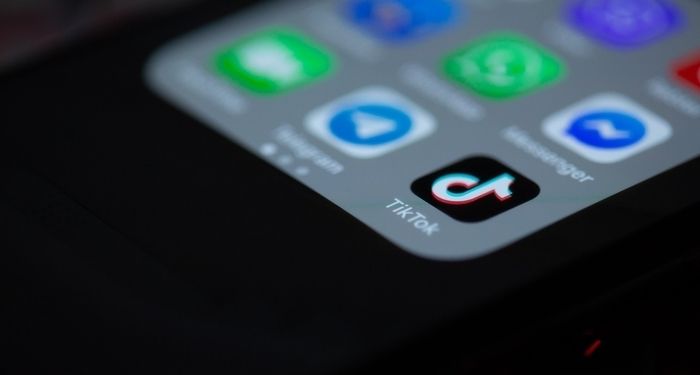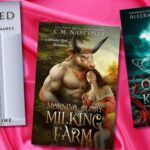
Is BookTok a Reinvention of Bookish Social Media, Or Just a Repeat?
There’s something to which I think we can all agree: social media can be toxic. Doesn’t anyone else yearn for the pre-Trump Twitter days where it felt like you could truly connect with like-minded people over shared interests or common complaints, and not be attacked by hidden avatars accusing you of being “woke”? Likewise, Instagram’s toxicity was evident practically from the start, and I’m not even going to attempt to discuss the triumphant rise and fall of Facebook. Indeed, social media hypnotized us all at first with the promise of a useful new tool with varying moral standards of how to use it properly. And in my opinion, there’s no current social media app more toxic than TikTok.
Teenagers are quick to accuse anyone who claims TikTok to be toxic as not understanding it, but as someone who came of age at a time when there was still respite from being constantly online with smart devices in our pockets, I understand it all too well. I understand its marketing potential and how quickly it can go from funny video to, “Is this really something that needed to be documented on film?” But even with my personal feelings about the app aside, it’s impossible to deny one of its more loveable qualities: its newfound ability to sell physical books, courtesy of a particular corner known as #BookTok.
With Instagram also trying to capitalize on the advertising and marketing potential of fast-paced video content, it’s highly likely you’ve seen some version of BookTok trickle down onto your other social media feeds. Its idea is quite simple: book recommendations, often without so much as a premise, recommended at rapid speed in a video of between 30 seconds and one minute. For those who are no strangers to reading and already exchanging reading recommendations on the Internet, these videos might not seem like much. But for those casual bookworms who aren’t sure of which friend to ask for the perfect book for them, BookTok seems like the perfect place to browse before buying.
“TikTok’s vibrant literary subculture emerged around the onset of the pandemic, when more young people were confined to their bedrooms, with few options for entertainment other than reading,” observed Sophia Stewart from Publishers Weekly. “BookTok influencers are predominantly teenagers and young women, excited to share their book-related opinions, rankings, and recommendations. When a book catches on among users (a common hashtag on BookTok videos is #TikTokMadeMeReadIt), the real-world results can be impressive.” But before long, BookTok went from a niche corner of social media where readers could unite over shared favorites to a legitimate driving force of profits in the publishing industry.
What started as a platform of free promotion for primarily young adult titles has since transitioned into one of the biggest commanding forces in publishing for adult fiction. According to The New York Times, BookTok helped sell upwards of 20 million physical books in 2021 alone. “BookTok is not dominated by the usual power players in the book world such as authors and publishers but by regular readers, many of them young, who share recommendations and videos of themselves talking about the books they love, sometimes weeping or screaming or tossing a copy across the room,” wrote Elizabeth Harris. “The most popular videos don’t generally offer information about the book’s author, the writing or even the plot, the way a traditional review does. Instead, readers speak plainly about the emotional journey a book will offer.” And that is precisely the hook and wide appeal of BookTok: rather than a black-and-white review with a rating at the end, these videos tell viewers what kind of emotional rollercoaster they will be in for if they choose to pick it up, which appears to sell more books than sharing too many of your thoughts.
In addition to prioritizing a book’s emotional content above all else, BookTok’s appeal extends to social media users’ tendency to be drawn to content that showcases someone promoting a product, in this case a book, in which they likely have no real financial stake or investment. A respite from the typical feed littered with celebrities and influencers bumping paid promotions, if you will. Liz Perl, chief marketing officer at Atria Books, emphasizes this distinction and claims that publishers should be paying attention to this creation of more “organic content” on social media, since bookworms in particular have clearly been responding to it.
What makes a book go viral on BookTok, aside from what emotions you can expect and this return to more earnest posts on social media? It remains hard to pinpoint. But bookish corners of social media did exist long before the rise of TikTok, particularly Bookstagram and BookTube. And many of the titles that have since seen renewed interest and a boost in sales, including but not limited to Hanya Yanagihara’s A Little Life, E. Lockhart’s We Were Liars, Taylor Jenkins Reid’s The Seven Husbands of Evelyn Hugo, Madeline Miller’s The Song of Achilles, and Adam Silvera’s They Both Die at the End, already had a previous moment in the sun of popularity on Bookstagram at the time of their publication. (My friends and I were already gushing about We Were Liars when it came out in 2014. History repeats itself.)
But where BookTube and Bookstagram differs from BookTok, according to Barnes & Nobles’s director of category management Shannon DeVito, is that neither of those platforms had been as much of a game-changer as the latter. Where she describes a book’s popularity on YouTube or Instagram as more like a “flash in the pan,” books have actual staying power on BookTok. “Our booksellers are able to buy deeper, and I like to think intelligently so, because the top titles and recommendations maintain high volume for weeks and months on end,” she said.
While there may be newer titles that skyrocket in sales thanks to exposure on TikTok, the amount of older books that see renewed popularity on BookTok appear to mostly be younger users discovering novels that were already popular for their own reasons. Matt Haig’s The Midnight Library, for instance, had already received acclaim from critics and Goodreads users alike before exploding on BookTok in the last two years. Similarly, Evelyn Hugo and Where the Crawdads Sing both saw massive popularity when they were first published in 2017 and 2018 respectively, but when BookTok began its reign thanks to quarantined teens during the pandemic, both titles stayed atop bestseller lists.
At this stage, the process of predicting what kind of book will become popular on BookTok appears fairly straightforward: pretty much the same contemporary books that will appear on any number of major publication’s year-end best of list. At a casual glance, BookTok is littered with reading suggestions that don’t really deviate from the norms for those who may write about books or recommend them for a living (*raises hand*), but for casual readers who are looking for a quick and easy way to pick out their next read that’s guaranteed to be good, it’s a goldmine. But the idea that a short video or reel will recommend books that are guaranteed to wow everyone is ludicrous. Because the phenomenon is still relatively new, its popularity and apparent genuine ability to impact sales should allow for a more diverse pattern of reading suggestions in the years to come.
Ultimately, people scrolling TikTok to decide which book they should pick up next are really just looking for one that’s going to make them feel something. Life is difficult enough as it is, and some people just don’t have the time to be scouring print media the same way they scroll through their social media at the end of a long day. It’s the only way to justify how Colleen Hoover, author of BookTok darlings like It Ends With Us, has had four of the 10 best-selling books in the United States alone in 2022. Hoover’s books clearly make readers, particularly those on TikTok, feel all the feelings, which is something they’ve come to want to share together. And where Instagram used to only allow pretty pictures of books to buy, BookTok holds the key to publishing’s digitally interactive future.












